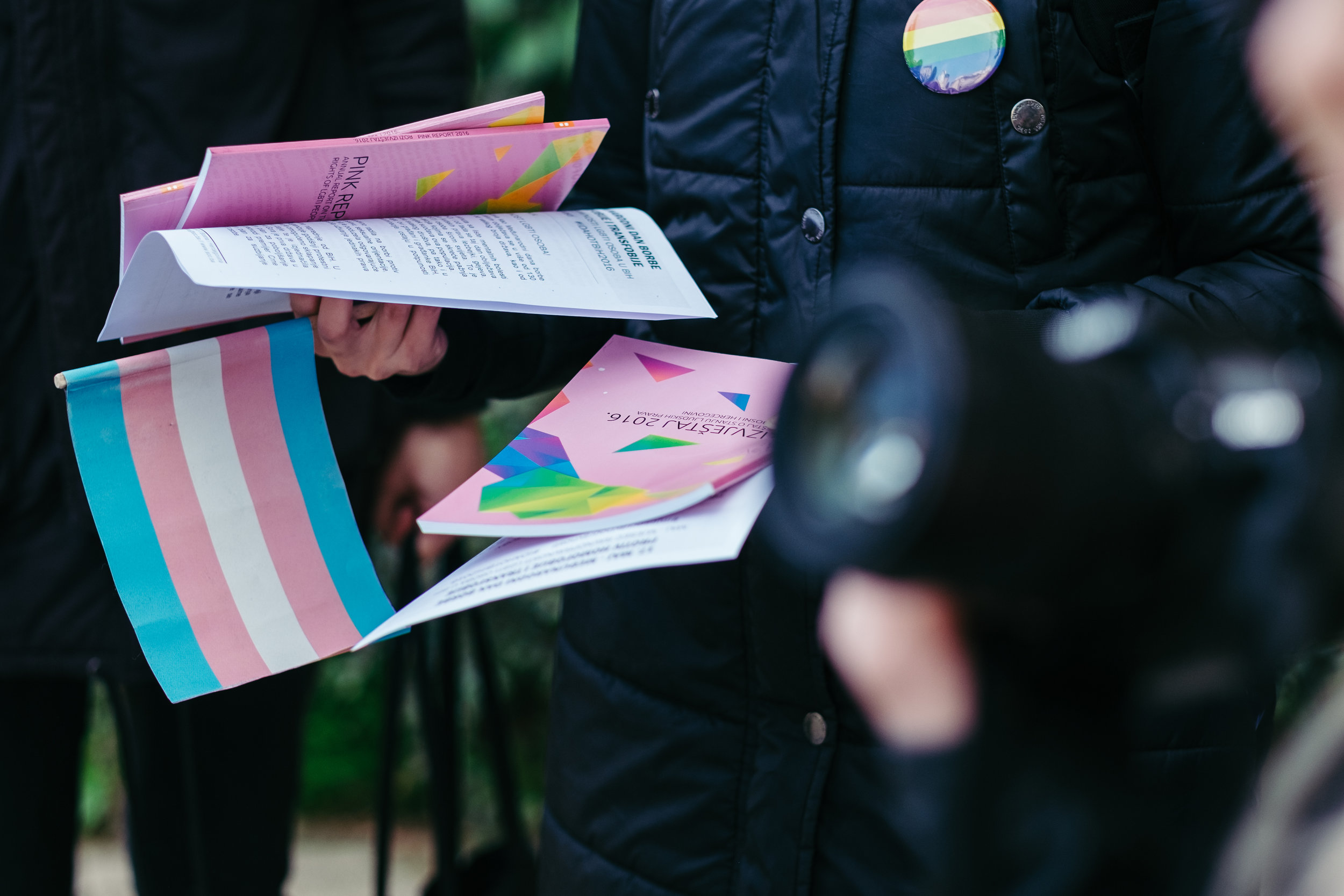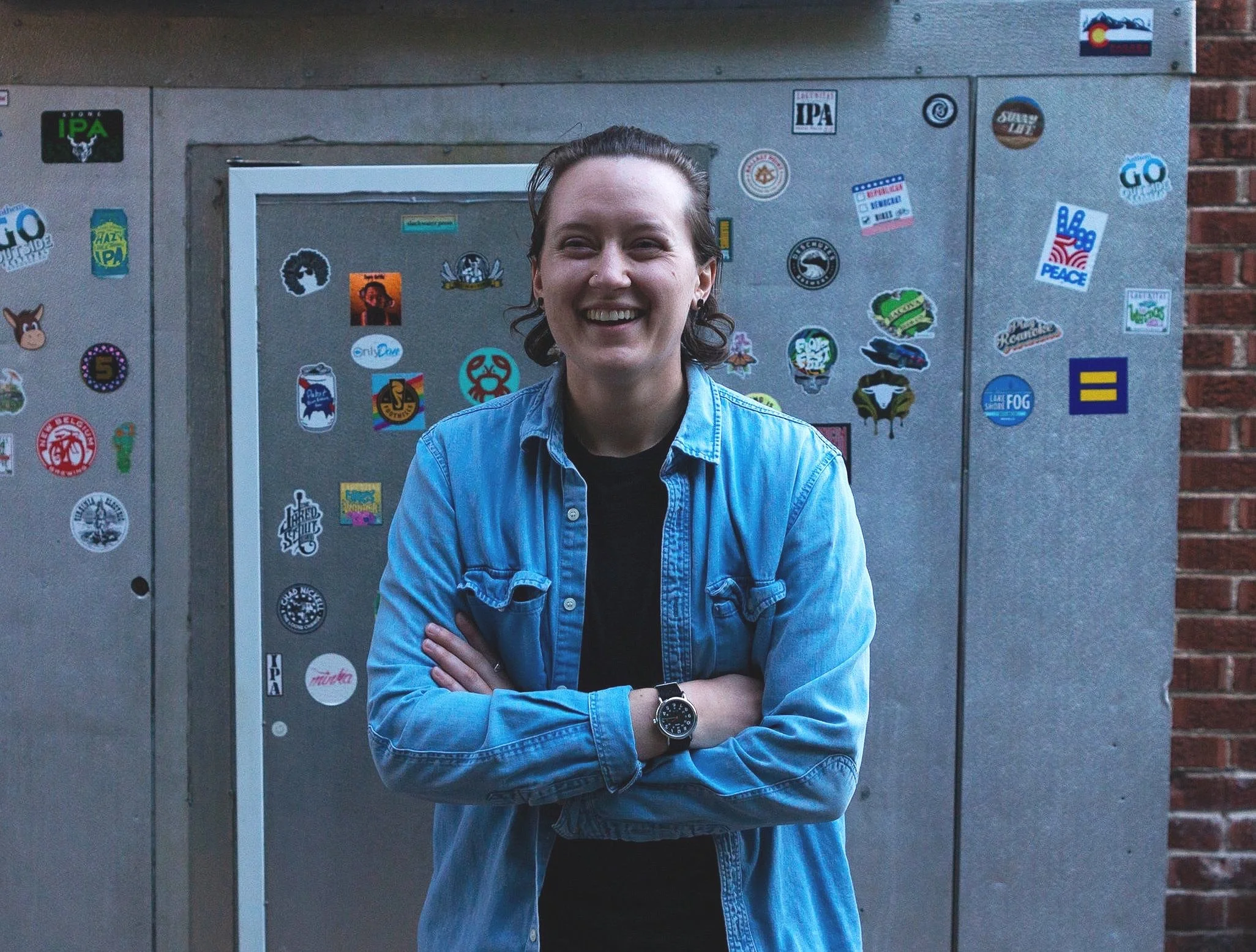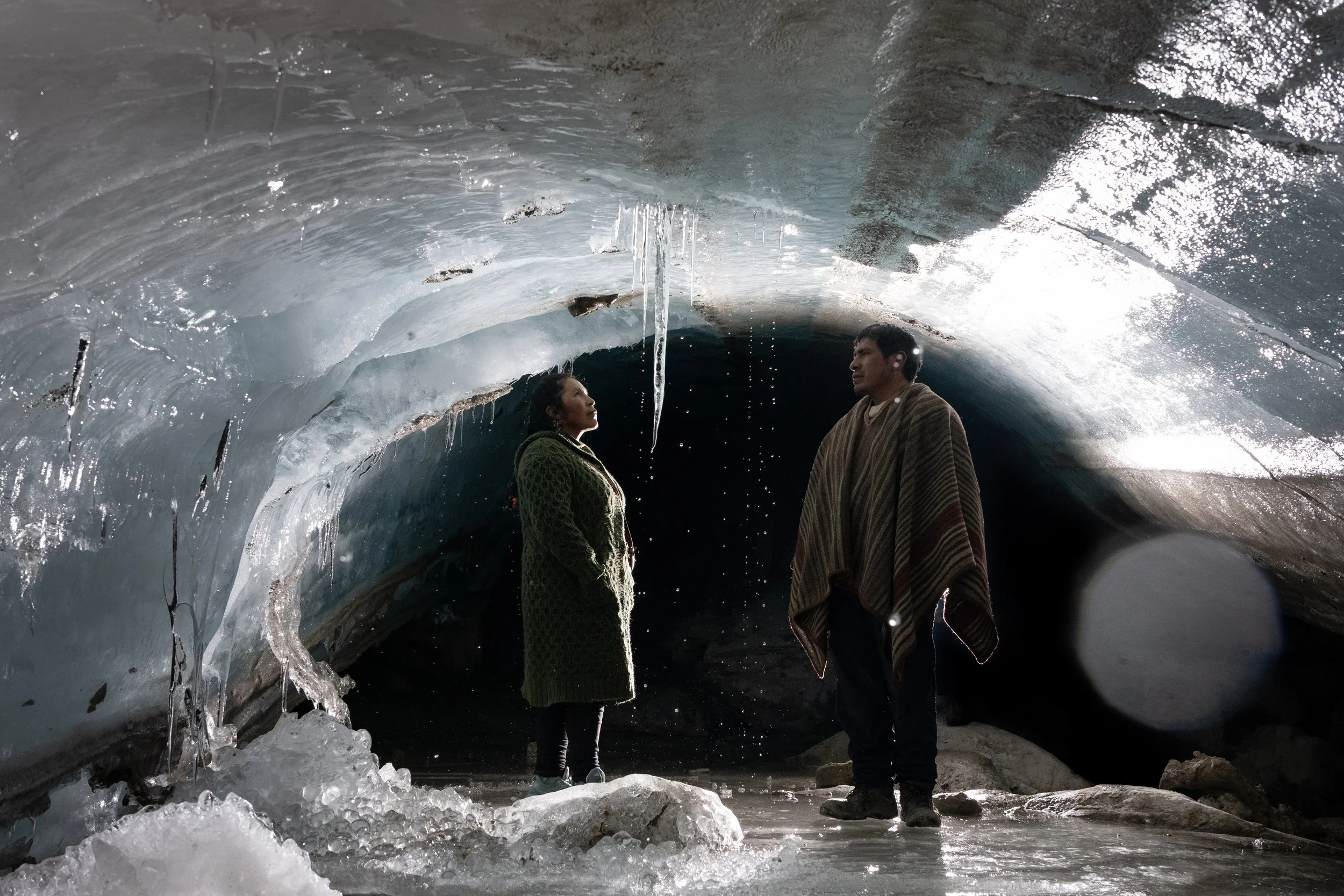Photo by Ron B. Wilson
It was in the early morning hours of June 28th, 1969, when a routine police raid at the Stonewall Inn in Greenwich Village, New York City was met with resistance by the LGBTQ+ community. Transexual, Transgender, Crossdressers, Drag Queens and Kings stood firm, fed-up with the violence they were being met with from police time and time again. While activism had been taking place since the 1950s, this night catalyzed the LGBTQ+ liberation movement in the West.
This year marks the fiftieth anniversary of the Stonewall Riots, and in most places in the West, Pride events offer a peaceful space to honour identities, acknowledge and mourn losses and celebrate inclusion and progress. Increasingly, Pride is also an opportunity for the corporate appropriation of the LGBTQ+ movement. However, its roots lie in struggle; Pride is Political.
LGBTQ+ communities and allies around the world struggle to secure equal rights and protections- they do not have parades, they march - and therein lies the difference. They peacefully resist discrimination and hate while continuing to be met with it.
This Pride, we celebrate three NGO’s from around the world, working relentlessly to uphold LGBTQ+ communities in a time that does not recognize them as deserving the same human rights protections as their fellow citizens who are heterosexual and/or cisgendered. The work they do is Pride.
Photo by Mel Hattie
Project 1948 was named in reference to the year the Universal Declaration of Human Rights was published. 1948 is an educational platform aiming to create policy-change in Bosnia and Herzegovina. The Universal Declaration of Human Rights states that all human beings are inherently equal and are entitled to human rights protections. The goal of Project 1948 is to document daily life through a lens and, in turn, give voice to community concerns.
LGBTQ+ people living in Bosnia and Herzegovina experience employment and housing discrimination, and same-sex marriage is not recognized under the law. Conversion therapy for the LGBTQ+ community in Bosnia, however, is illegal and consensual same-sex sexual relations are no longer criminalized.
Photos by Mel Hattie
On assignment with Project 1948, photographer Mel Hattie was able to document a significant win for the LGTQ+ community in Bosnia Herzegovina. On May 17, 2016, community members organized an unofficial Pride protest in recognition of the International Day against Homophobia, Transphobia and Biphobia.
This Spring, government officials announced that they would support the country’s first ever sanctioned Pride parade, set to take place this September in the capital city, Sarajevo. Fifteen activists from various community groups are said to be leading the event’s planning. Support Project 1948.
Photo by Ron B. Wilson
The Society Against Sexual Orientation Discrimination (SASOD) in Guyana has just celebrated their second ever, official Pride Parade in the country’s capital of Georgetown. Guyanese MP Priya Manickchand and diplomats from the U.K. and Canada also participated in the event.
Today, Guyana is among the more than 70 countries where consensual same-sex sexual relations are still criminalized under the “buggery law.” Though decriminalization is pending, the current laws can sentence LGBTQ+ community members anywhere between fifteen years to life in prison. SASOD is active in lobbying the government to change the discriminatory laws and policies against LGBTQ+ people in Guyana.
Photo by Ron B. Wilson
The LGBTQ+ community in Guyana also face barriers to employment, unsafe or precarious housing, unequal access to health care, underemployment or unemployment, physical harassment and discrimination. SASOD provides educational programs for LGBTQ+ people in sexual and mental health, literacy and education training, entrepreneurship and employment, emergency shelter and housing as well as legal assistance.
SASOD also runs a “Discrimination Reporting and Documentation System” that collects information, stats and data on hate crimes and harassment while also protecting the identities of those reporting. An online information initiative put out by SASOD, known as the “Spectrum Health Project,” acts as a positive resource of holistic information on health and education for the LGBTQ+ community, made by the LGBTQ+ community. Support SASOD.
Photo by Maria Paula
In 2013, Tergo which means “The Rear” sprang up in Kyiv as a support network of allies and the LGBTQ+ community. Tergo estimates that there are close to one million LGBTQ+ people in Ukraine - and today, not one of them has the same protections under the law that heterosexual and/or cisgender citizens have. Tergo is working to achieve full equal human rights for the LGBTQ+ community in Ukraine.
LGBTQ+ people in Ukraine struggle to find work, do not have equal access to health care and are not likely to have safe, supportive or loving relationships with their parents or other family members. As well, the LGBTQ+ community are at risk of legal conversion therapy and are not legally allowed to marry or adopt children. Transgender people in Ukraine are not allowed to access hormones or a medical transition until the age of 25.
Photos by Maria Paula
In recent years police have been increasingly protective of community activists during demonstrations, but reports of hate crimes are not followed up. Tergo acknowledges there is a lack of resources for parents of LGBTQ+ people, and work to bridge that gap by providing safe meeting places, workshops and training.
While the task may not be, the mission of Tergo is simple: to harmonize relationships between parents and their LGBTQ+ children, promoting equality through providing education, emotional support, and advocating for LGBTQ+ rights and legal protections. Support Tergo.
Though Pride month is coming to a close, community organizers continue their efforts all year round. Donate today to support our partners who are working towards safety and equal rights for their LGBTQ+ community.





















